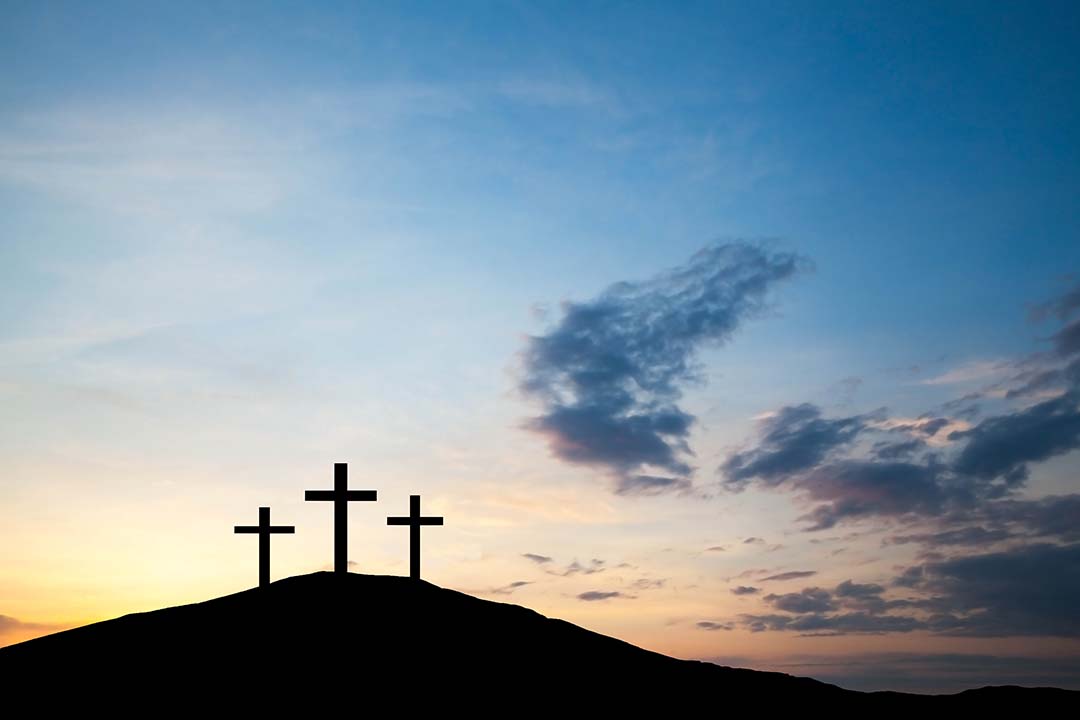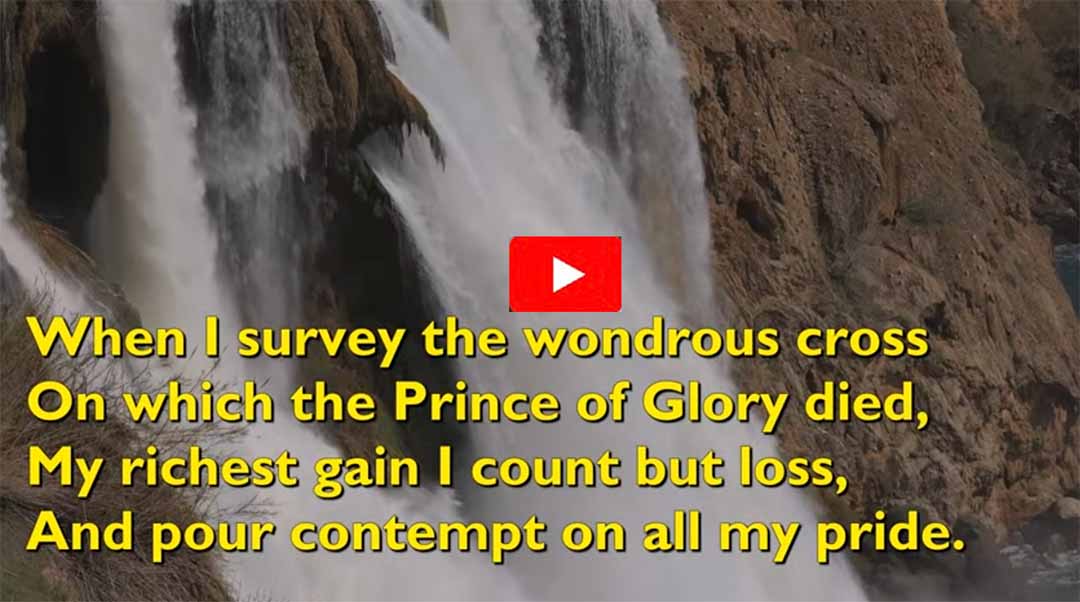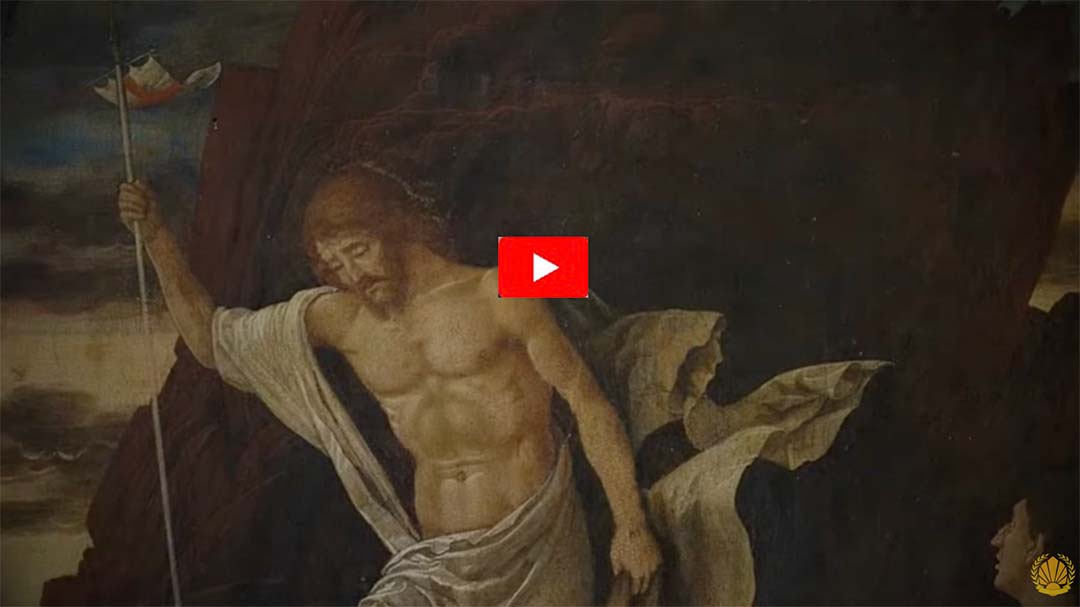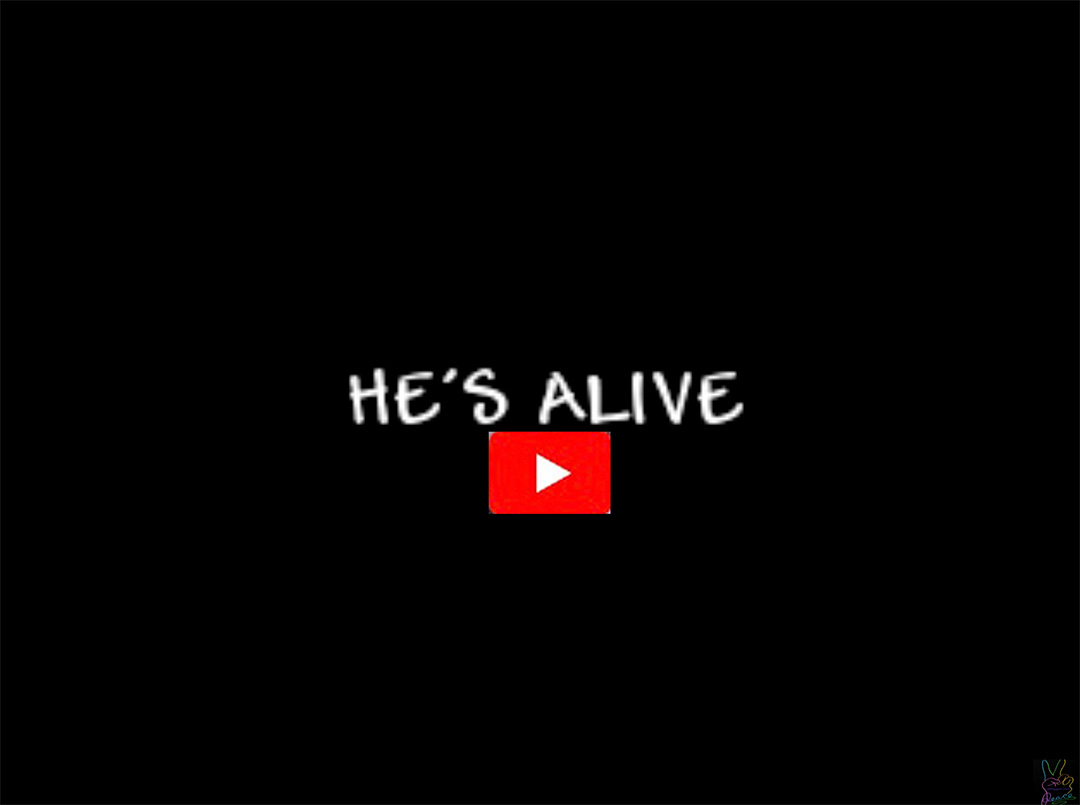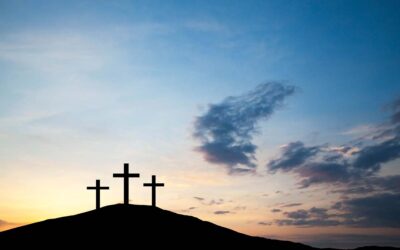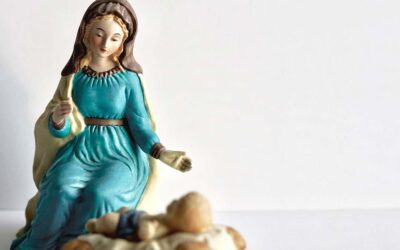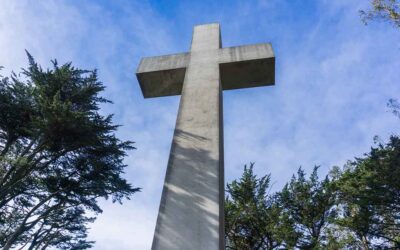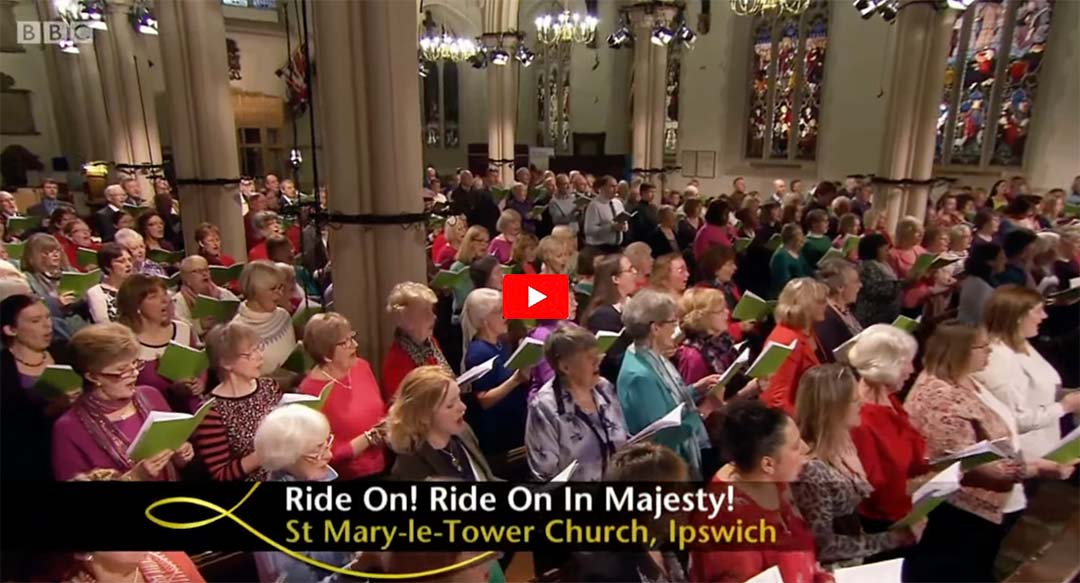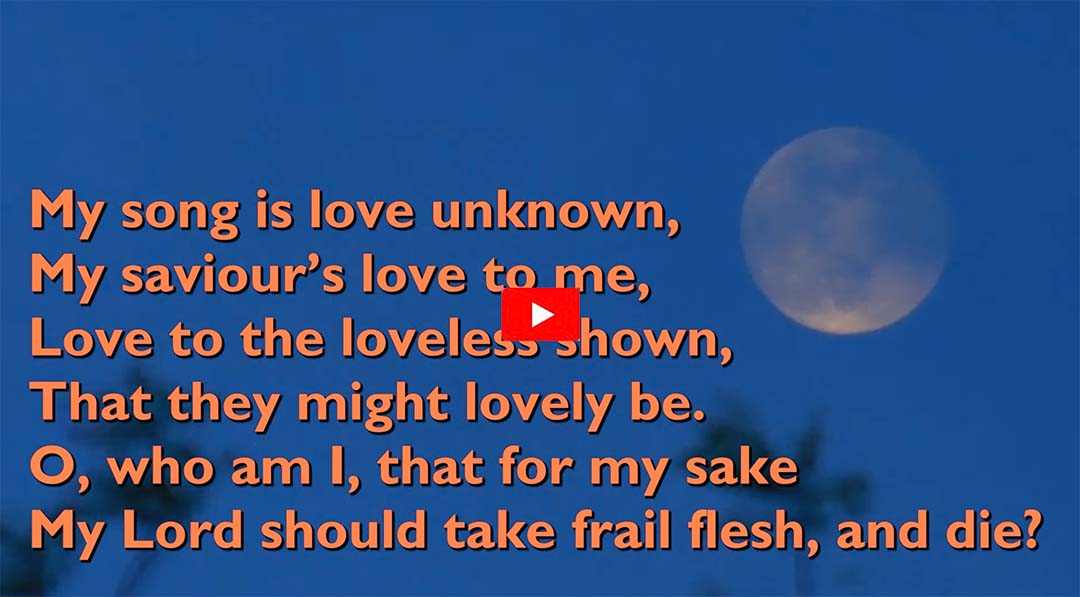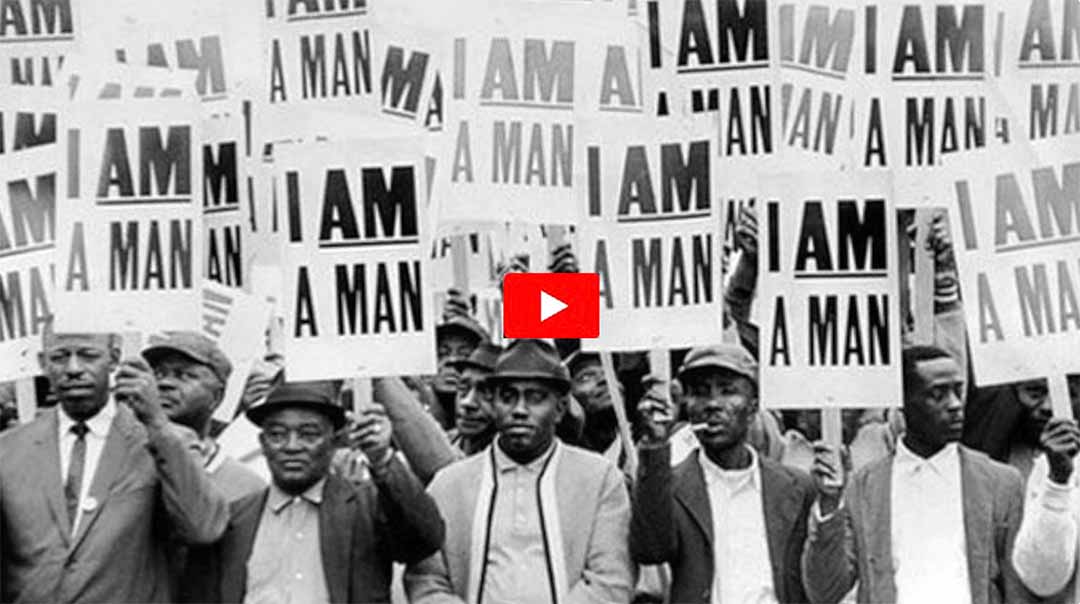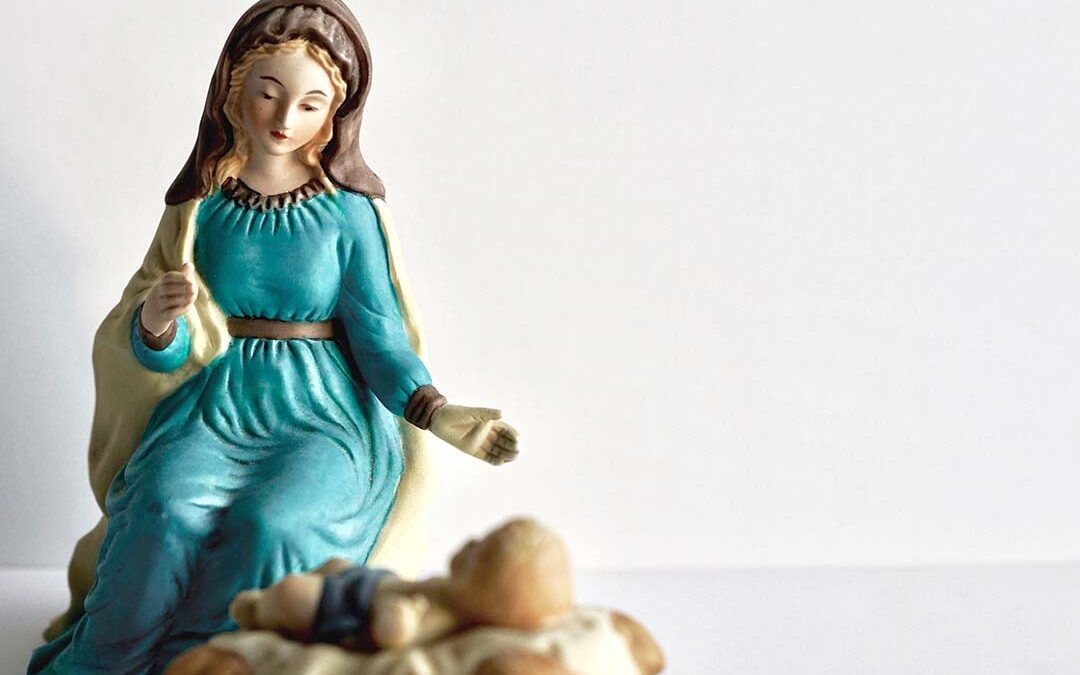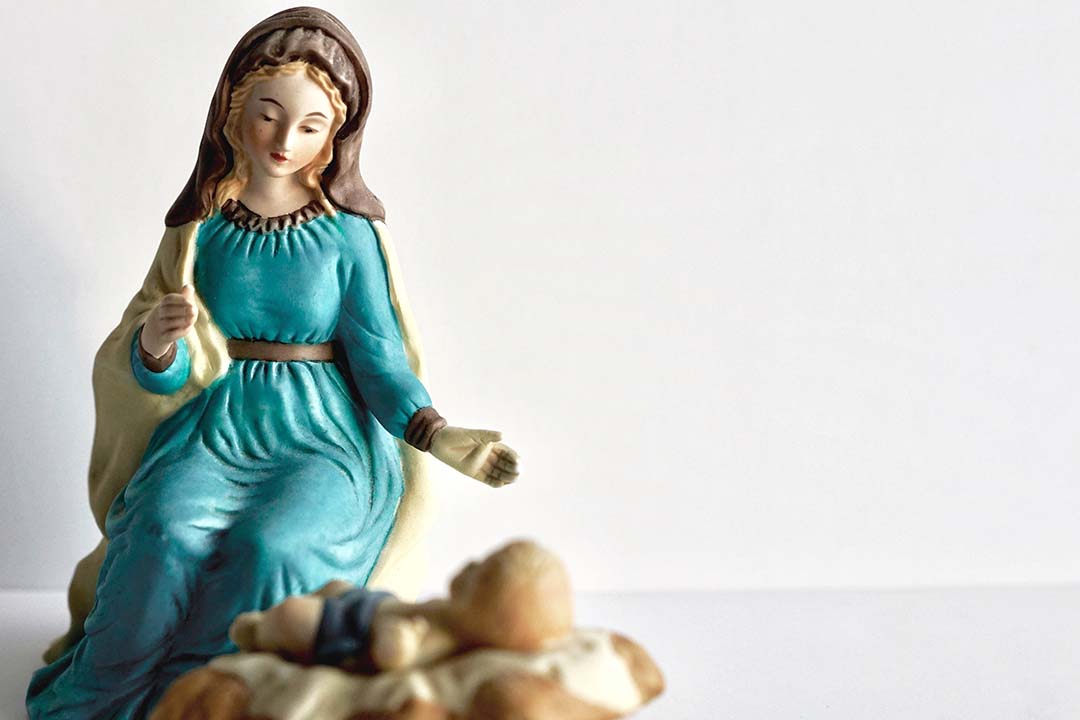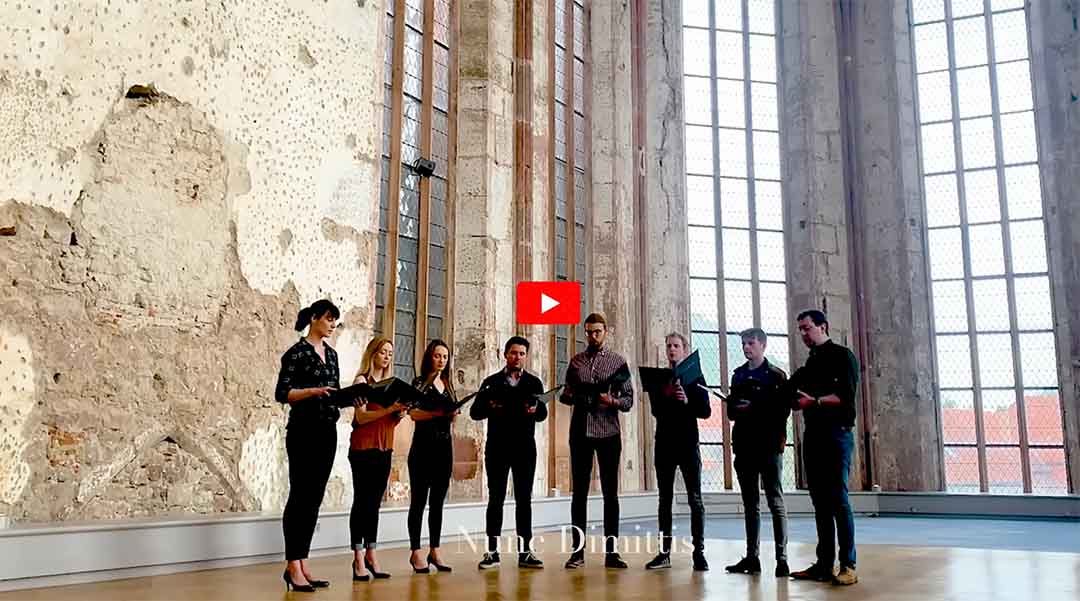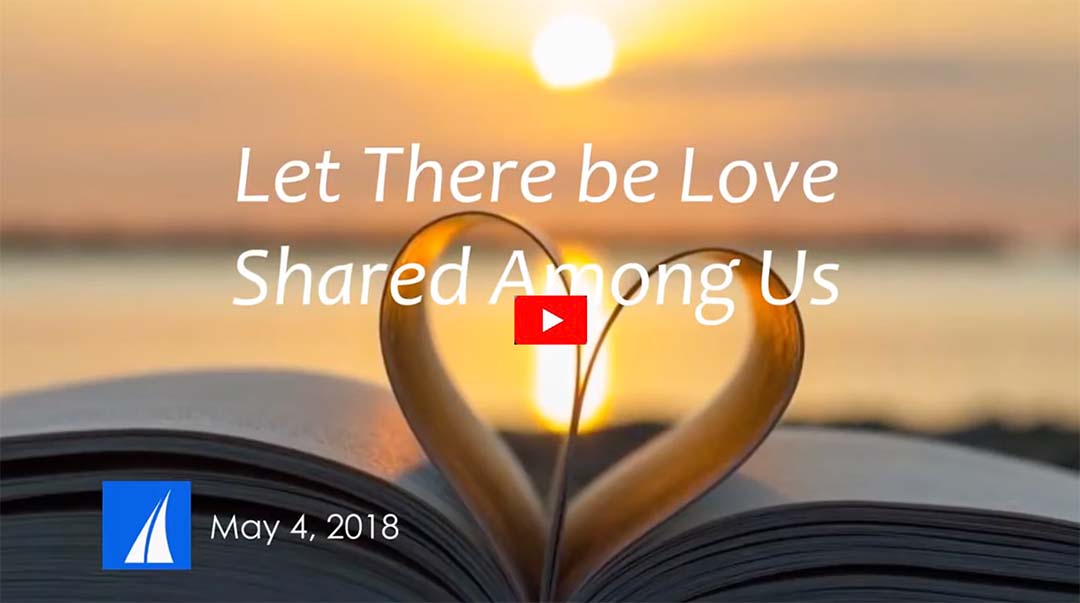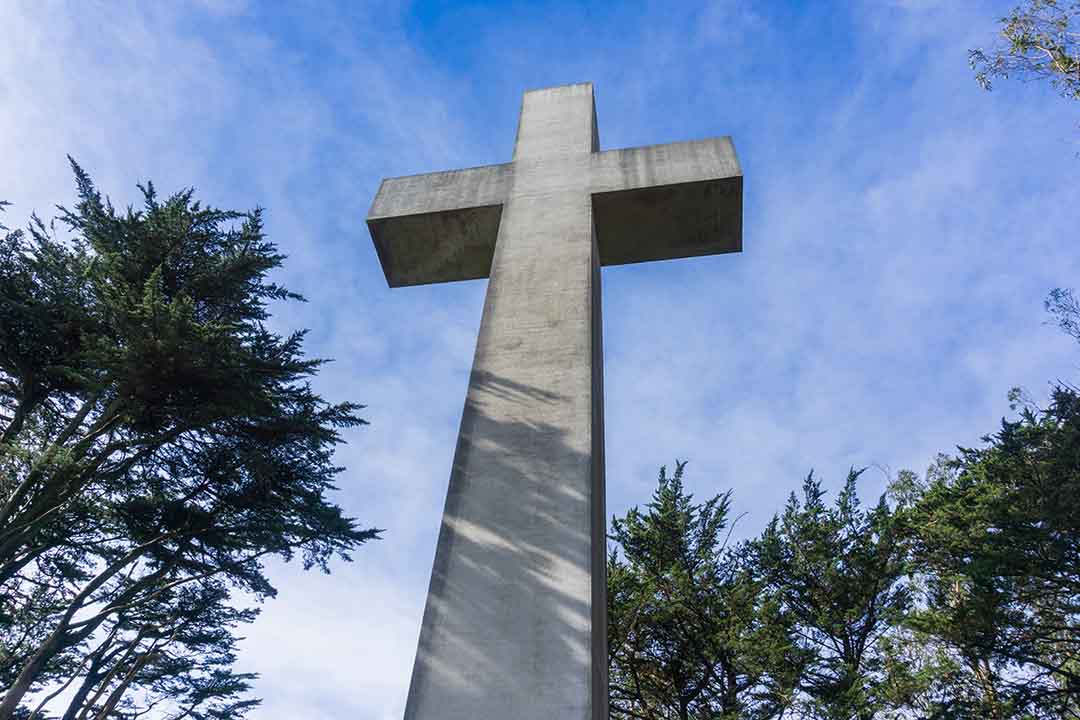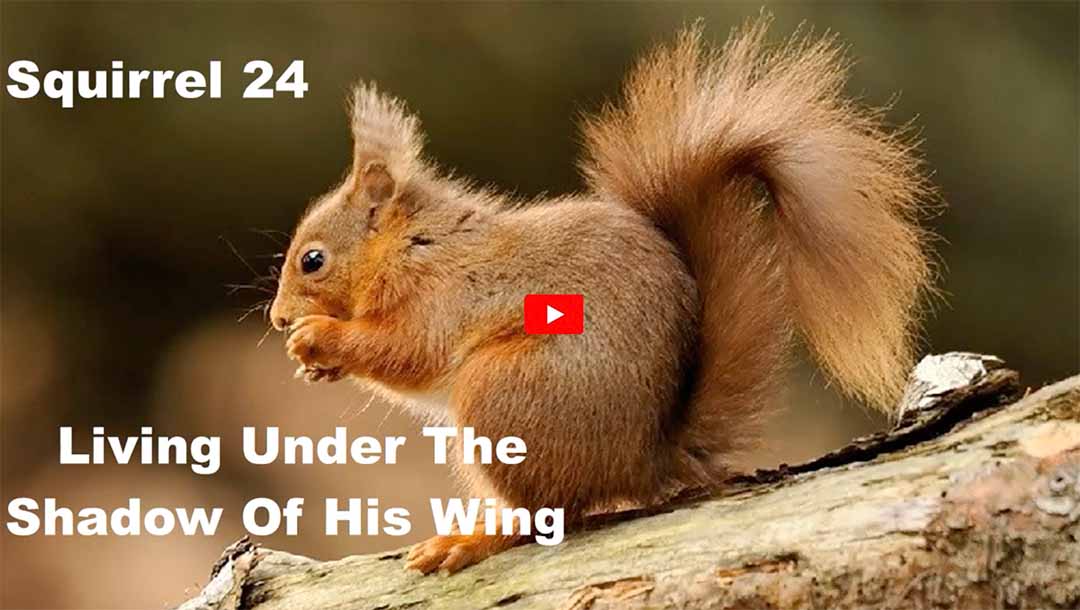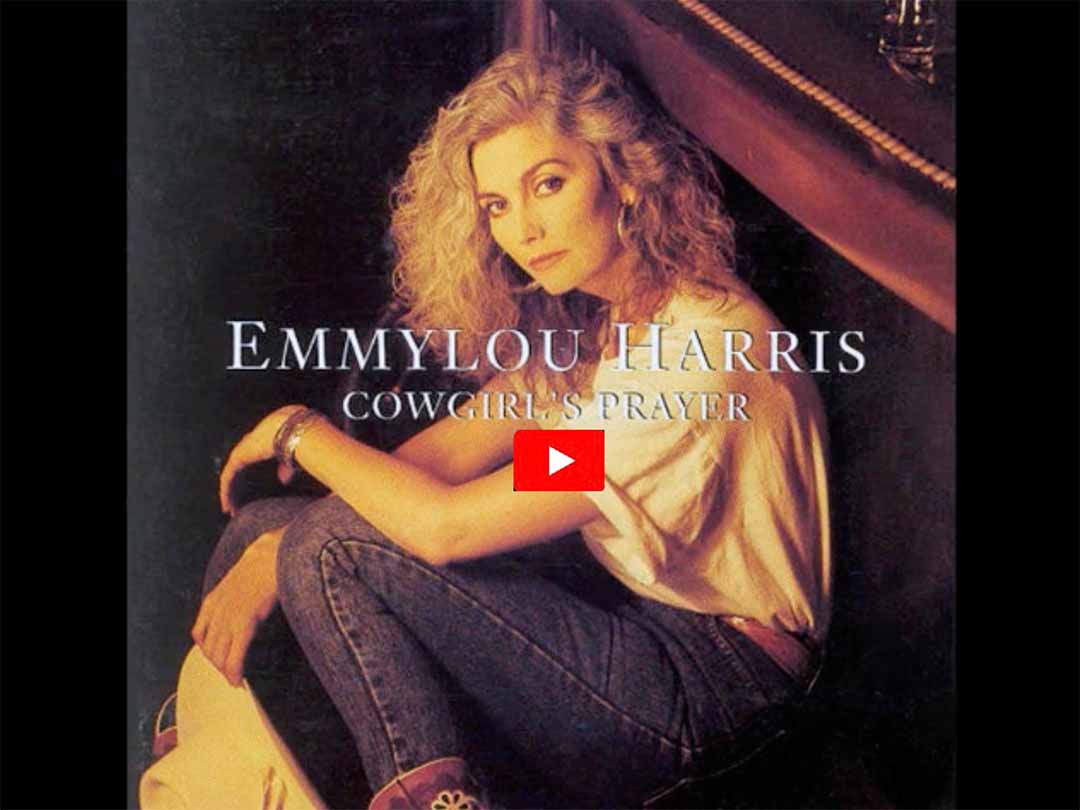So together, morning, noon and night, we shout Thanks be to God! He gives us the victory through our Lord Jesus Christ.

Praying Together 20th April 2025
Meditation for Easter
Collects
Almighty God, through your only-begotten Son Jesus Christ you have overcome death and opened to us the gate of everlasting life: Grant that, as by your grace going before us you put into our minds good desires, so by your continual help we may bring them to good effect; through Jesus Christ our risen Lord who is alive and reigns with you and the Holy Spirit, one God, now and for ever.

Good Friday – the Passion. Matthew 27:45-51
From noon on, darkness came over the whole land until three in the afternoon. And about three o’clock Jesus cried with a loud voice, ‘Eli, Eli, lema sabachthani?’ that is, ‘My God, my God, why have you forsaken me?’ When some of the bystanders heard it, they said, ‘This man is calling for Elijah.’ At once one of them ran and got a sponge, filled it with sour wine, put it on a stick, and gave it to him to drink. But the others said, ‘Wait, let us see whether Elijah will come to save him.’ Then Jesus cried again with a loud voice and breathed his last. At that moment the curtain of the temple was torn in two, from top to bottom. The earth shook, and the rocks were split.
John Donne’s poem ‘Good Friday 1613. Riding Westward’ describes his emotions as he turns his back on the crucified Christ – not because he doesn’t believe – but because he does, and he can’t bear the pain of watching Christ’s agony. He rides away, hoping that in concentrating on worldly things, he will be able to dismiss the thoughts of Jesus’ death – but he can’t. He feels that his sins must first be punished – and this can happen through grace alone as his Redeemer takes those sins to the Cross. And he realises that through Christ, and only through Christ, will he be able to see his Saviour’s face as the curtain of separation is torn in two.
Donne’s life changed that day as he understood that his spiritual life was more important than anything the secular life could offer.
So many others have experienced a life-changing moment as they encounter Christ face-to-face in the strangest places. Donne was riding from Warwickshire to Wales. Paul’s life changed on the road to Damascus as he left behind the restricting fog of rules and regulation and chose the fresh air of freedom. John Wesley felt the warmth of the Spirit as he encountered Christ in a profound new understanding at a meeting in Aldersgate he really didn’t want to attend. C.S.Lewis’ reluctant acceptance of Christ took place on a bus ride in Oxford.
On the most dramatic and significant Friday in the history of the World, the curtain of the Temple was torn in two. We have a choice. Do we turn our back, frightened to see the face of Christ, or do we walk past the curtain to greet Him and welcome Him into the centre of our being?
This day I call the heavens and the earth as witnesses against you that I have set before you life and death, blessings and curses. Now choose life, so that you and your children may live
Deuteronomy 30:19
Easter Day – Resurrection. Luke 24:1-12
But on the first day of the week, at early dawn, they came to the tomb, taking the spices that they had prepared. They found the stone rolled away from the tomb, but when they went in, they did not find the body. While they were perplexed about this, suddenly two men in dazzling clothes stood beside them. The women were terrified and bowed their faces to the ground, but the men said to them, ‘Why do you look for the living among the dead? He is not here, but has risen. Remember how he told you, while he was still in Galilee, that the Son of Man must be handed over to sinners, and be crucified, and on the third day rise again.’ Then they remembered his words, and returning from the tomb, they told all this to the eleven and to all the rest. Now it was Mary Magdalene, Joanna, Mary the mother of James, and the other women with them who told this to the apostles. But these words seemed to them an idle tale, and they did not believe them. But Peter got up and ran to the tomb; stooping and looking in, he saw the linen cloths by themselves; then he went home, amazed at what had happened.
Lord God, early in the morning, when the world was young, you made life in all its beauty and terror; you gave birth to all that we know: sky and seas; plants and trees; bodies of light in the sky; creatures of the land, water, and air; man and woman.
Early in the morning, when the world least expected it, a newborn child crying in a cradle announced that you had come among us, that you were one of us. The angels proclaimed it, the shepherds heard it, and in obedience . . . worshipped.
Years later, early in the morning, surrounded by respectable liars, religious leaders, anxious statesmen, and silent friends, you accepted the penalty for doing good, for being God: You shouldered and suffered the cross, and with the words, “It is finished!” you put an end to our hopeless state of death, giving instead the promise of salvation and life.
Early in the morning, a voice in a guarded graveyard, empty cloths and footsteps in the dew proved that you had risen, that you had come back to those and for those who had forgotten, denied, and destroyed you. God raised Jesus from the dead, freeing him from the agony of death, because it was impossible for death to keep its hold on him. God has raised this Jesus to life, and we are all witnesses of the fact. Praise be to the God and Father of our Lord Jesus Christ! In his great mercy he has given us new birth into a living hope through the resurrection of Jesus Christ from the dead.
Early in the morning, the body of believers gather together, one in faith and hope, one in purpose: To believe in and worship you, the one Lord, Jesus Christ, To live forgiven and thankful lives, and to celebrate the victory over death and the promise of eternal life.
So together, morning, noon and night, we shout Thanks be to God! He gives us the victory through our Lord Jesus Christ.
Go, in awe of the creation, incarnation, death, and resurrection of our God and give thanks that God has raised Jesus to life, and we are all witnesses to the fact. Amen. He is risen!
Author unknown
Previous Posts
Praying Together 20th April 2025
Praying Together 13th April 2025
He is sinless, we were not – but He takes our sin unto Himself, allowing us the freedom to choose to serve His purpose rather than our own
Praying Together 6th April 2025
Everyone runs in her own way, or his own way. And where does the power come from, to see the race to its end? From within. Jesus said, ‘Behold, the Kingdom of God is within you.
Praying Together 30th March 2025
As Julian of Norwich wrote, ‘the example of a mother’s service is closest, most willing, and most sure because it is most true’, and thus we use that example as part of our Lenten journey.
Praying Together 23rd March 2025
God gives us the freedom to make that choice, and will always offer us another chance when we fail, as He did to the barren fig tree.
Praying Together 16 March 2025
Unlike the other tragic heroes, Jesus has no flaw or blemish other than those inflicted by others: the scars on His back, the thorn-blood on His forehead, the betrayal by His friend.
Praying Together March 9th 2025
God’s demand for perfection need not discourage you in the least in your present attempts to be good, or even in your present failures.
Praying Together 2nd March 2025
God of the nations, whose sovereign rule brings justice and peace, have mercy on our broken and divided world.
Praying Together 23 February 2025
Meditation for the Second Sunday before Lent CollectAlmighty God,you have created the heavens and the earthand made us in your own image:Teach us to discern your hand in all your worksand your likeness in all your children;through Jesus Christ our Lord,who with you...
Praying Together 16th February 2025
And if you accept Him as Lord, allow Him to lead you as you walk into the future without looking back, and do what He has equipped you to do as His body on earth
Praying Together 9th February 2025
We are all asked to have the faith to put out into deep water, but we must remember that we will never be on our own. Peter’s ministry was made possible by the power of the Holy Spirit, as will ours.
Praying Together 2nd February 2025
We are all called to be the Body of Christ in His entirety – and we are to take the example of all ‘Saints’ who have gone before, both male and female, as models of our required behaviour.
